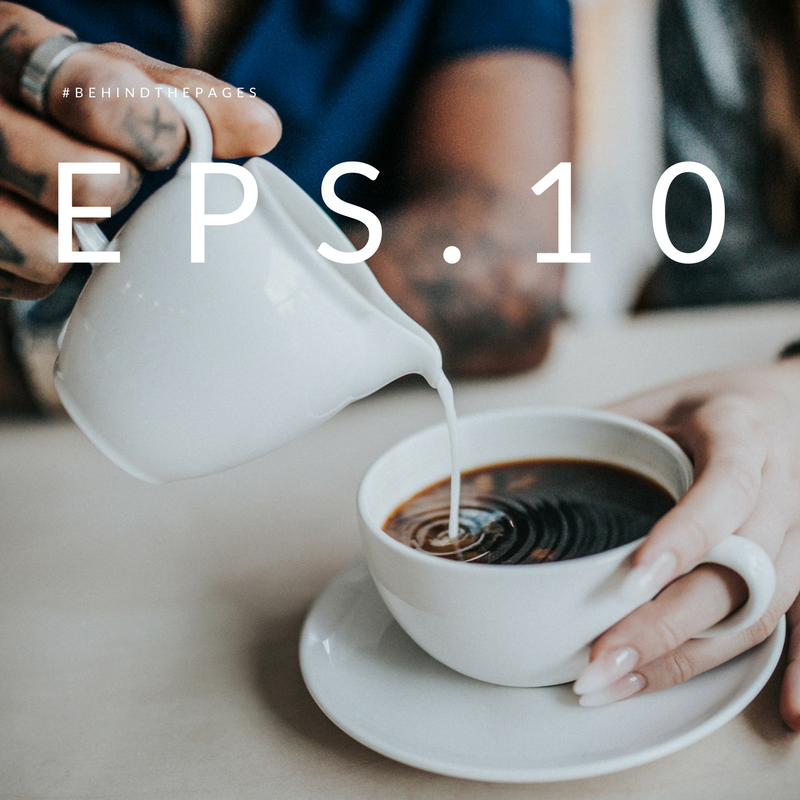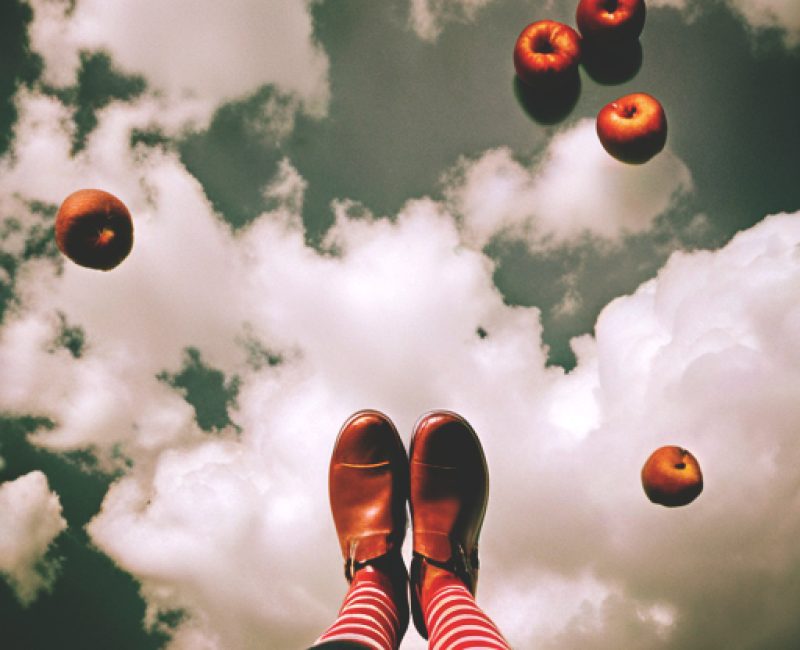Bernard Batubara (Bara) is an Indonesian author living in Yogyakarta, Indonesia. He begins his writing career as a poet. Today, his works have been published in newspapers, literary magazines, literary web portals, as well as several anthologies with fellow authors. His books are Angsa-Angsa Ketapang (2010), Radio Galau FM (2011), Kata Hati (2012), Milana (2013), Cinta. (2013), Surat untuk Ruth (2014), Jatuh Cinta Adalah Cara Terbaik untuk Bunuh Diri (2014), Jika Aku Milikmu (2015), Metafora Padma (2016), Elegi Rinaldo (2016), and Luka Dalam Bara (2017). Radio Galau FM and Kata Hati are now major motion pictures. He occasionally gives lectures on creative writing in high schools, universities, and communities.
How does Bara—the writer—see love and heartbreak in his writings?
Bara: My first novel draft was a love story. I wrote it when I was in junior high school. It was about the life of a rebellious high school student and a love story that blossoms with a classmate. A cliché, I know. Like a template. But it was only this kind of story that crossed my mind the first time I tried to write a novel. The draft was completed in 2 years.
I sent it to a big publishing company in Jakarta and got a rejection letter 6 months after.
At first, love-themed stories (and heartbreak; these two are actually a unit; it is impossible for each one to be written on their own) became the fuel for my writing. Simply because I felt that these stories were the ones closest to me. It was a theme I thought I understood the most. Actually, I wanted to write fantasy like Harry Potter novels, but all the monsters I could imagine already made their appearances there. I felt less imaginative to write fantasy and I didn’t read enough to write a historical novel. So, I wrote romance.
As time passed by, with 2-3 of my books were still talking about love, my readers (generally they are younger than me) labeled me: Bernard Batubara—the romance writer.
I started to be known (or seen) as a romantic guy because I write love stories. There was one time when I tried to ditch the label because it felt like I have been somewhat dwarfed by the market. I do possess other interests apart from writing love stories. However, now I accept it and think of that label (the romance writer) as a good opportunity to deliver various ideas outside my ideals about love itself.
My other books, although the ‘outer packaging’ is still revolving around love, are actually talking about a wide array of issues. I talk about illegal logging, horizontal conflict, social condition, law, modernism, urban living, existentialism, religion, and many more. Love stories are used as packaging, a prelude to my ideas.
One of the heaviest tasks for a writer is to make the reader feels connected to what he writes. Love (and heartbreak) story is the easiest material to get people to resonate with it. I use love stories as a bridge to talk about other things with my readers.
How far do you process real-life experience into fiction?
Bara: At first, I thought one of the most important skills a writer should possess is imagination. Writing is about creating things that once did not exist. That’s the joy of writing.
However, lately, I feel as if I am not too clever in making things up. It’s easier for me to write about the things I have experienced.
I don’t need to find the scenes, characters, or situations that don’t exist. I need only to daydream for a while, remembering a situation or a scene from my past, then write about it.
Easy.
But of course, it’s not always easy to write about your personal experience. There were times when I didn’t want to remember the things I needed to remember. I want to write about the things I have experienced, but I don’t want to write them all.
However, censoring my memory means a betrayal to memories itself.
At the end of the day, I just face it. Anger, disappointment, sadness, all the negative feelings that surface when I remember certain parts of my memories… I learn about them. I dissect my memories. I ask myself why it happened this way or that way, to the point in which I am able to digest those negative feelings and understand them; while turning them into stories.
The first step to remember is by reminiscing the most important part of my experience. For example, if I am writing a love story based on my experience with my ex, I will remember the most impressive moment of our relationship. Usually, that part contains a conflict, and this becomes a conflict in the story as well. I will start writing them down. From here, I can move in many different directions. I can go forward, or backward to past experiences until those memories turn into a full write-up.
How far do I go? Radio Galau FM—almost all of it is based on my personal experience. Kata Hati only takes some ideas and conversations that happen in the real world. Cinta dengan Titik is about someone else’s experience (my friend). Milana, part of it is a personal experience, and the other part is not. And there it goes.
I am most straightforward in my latest book, Luka Dalam Bara. In some of my social media channels and talk shows, I told my readers that the book recorded my romantic experience with someone (most of them know who this someone is).
Someone says, write only for one person. Do you agree with this?
Bara: I would say that I am quite in agreement with that suggestion. It reminded me of one of my favorite writer’s advice, Kurt Vonnegut. He said, write to please just one person. “If you open a window and make love to the world, so to speak, your story will get pneumonia.”
Another favorite writer of mine, whose name I do not wish to mention here, once said that he writes only for one person: himself. I think I have done the same thing, writing only to please myself, and I did it because it’s easier than pleasing everybody. (Everybody means 7 billion people on earth? Scary)
All stories are love stories. How do you feel about this? Is this something you believe in?
Bara: Yes and no.
No, because there are good stories I have read, and the writer does not write about romance at all. Some good stories talk about war, violence, political intrigue, glum future world, and many more. Good stories are not always about love.
However, I think even in those stories where love-themes are avoided, at a certain point they will indirectly tell us something about love. Love becomes something subtle and inherent in the story of life, and this—at times, enables us to see love stories in novels that don’t fall under the romance genre. When I read 1984 by George Orwell, I read a love story between the protagonist and his female partner, although Orwell might want to tell a story about the forlorn future of humans.
All stories are love stories—this could be true for the previous reason: love is something inherent in life and it takes different shapes. We’re not only talking about eros love or platonic love but many different kinds of love. Just like it is impossible to write a story without a mention of human sufferings, it is also impossible to avoid bringing forth a love story, however subtle, in a story.
As a writer, how do you see the difference between your male and female characters when they fall in love or heartbroken?
Bara: Male characters in fiction works I’ve ever read face their broken-heartedness in a way that is not too different from my male friends in the real world. First, they will deny it. Second, they find distractions. Third, they regret the things they have done. Fourth, they know it’s impossible for them to turn back time, so they’ll enter the next step. Fifth, they accept the fact that they are the real problem in that broken relationship.
The same goes for female characters. They’ll weep, mourn until their tears dry up, and in no time they find someone new to love.
I guess because fiction is a reflection and a result of contemplation of real-world events, the characters’ actions would not be that far different from what we have seen in the real world. These are also the things that make us feel connected to a novel or short story we are reading. We feel as if we are seeing ourselves (or our friends) in it.
How is your attachment to your works? How do you deal with compliments and criticisms?
Bara: I would think of myself as a writer that could move on easily when it comes to my work.
At the time a new book is being published, I no longer think about it. I am already focusing my mind on the next one. Sometimes, during talk shows, there were questions from readers about certain scenes in my book—and I had to dig my mind really hard to answer that—since I had detached myself quite far from that work.
I used to think of my published books as my children. In that sense, our relationship is like this blood-connection between a father and his children. But then, I thought, a good father could be one who lets his children grow independently and find their own ways to face the world. Furthermore, the world the children are facing is their own world—a world that is different from the world of their father.
My attachment towards my published works is limited to a chronological memory. Which book, published by when, or how I began writing that book… those kinds of things. But when it comes to emotional attachment or the like, I don’t think I have that kind of feelings inside of me.
I do not have enough energy to cultivate an emotional relationship with all of my works. Life moves forward and I invest my energy on my future works.
And speaking about criticism, I was once annoyed with the mocking of my works on social media. However, afterward, I realized that being annoyed had no benefit for me. So, that was it. Today, I think of all the responses to my work as appreciation. I only take into account inputs from people whose reading taste and thinking ability I trust.
The rest are just different forms of appreciation.










One Response
Gue selalu suka sama tulisan-tulisan Bara. ^_^